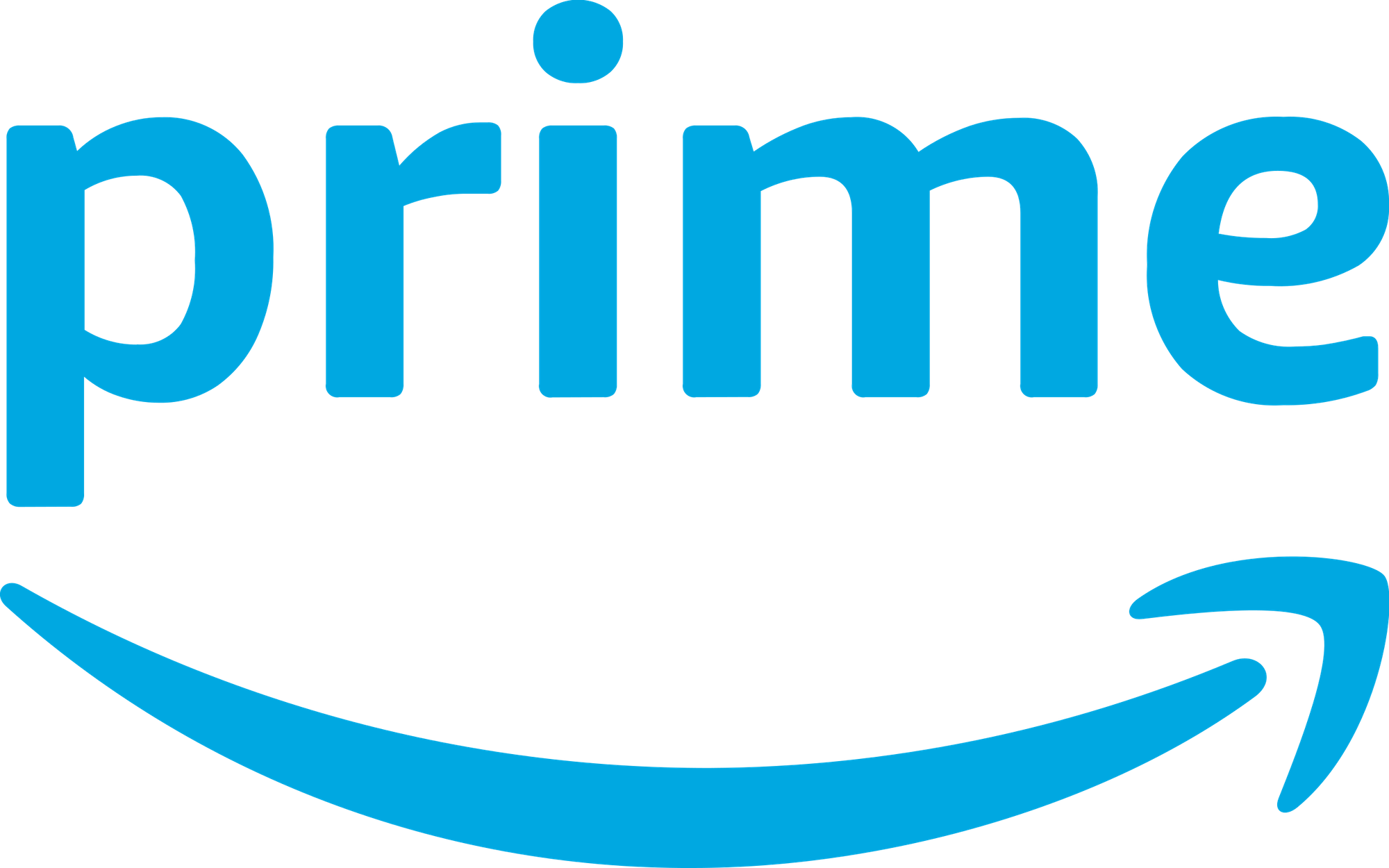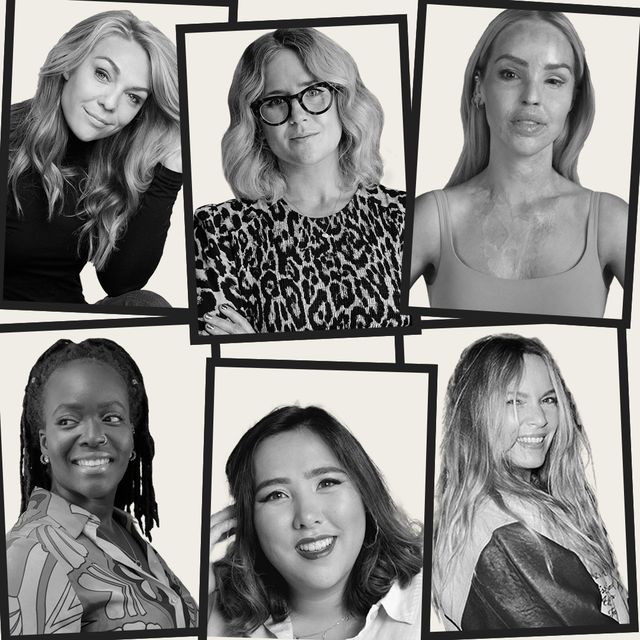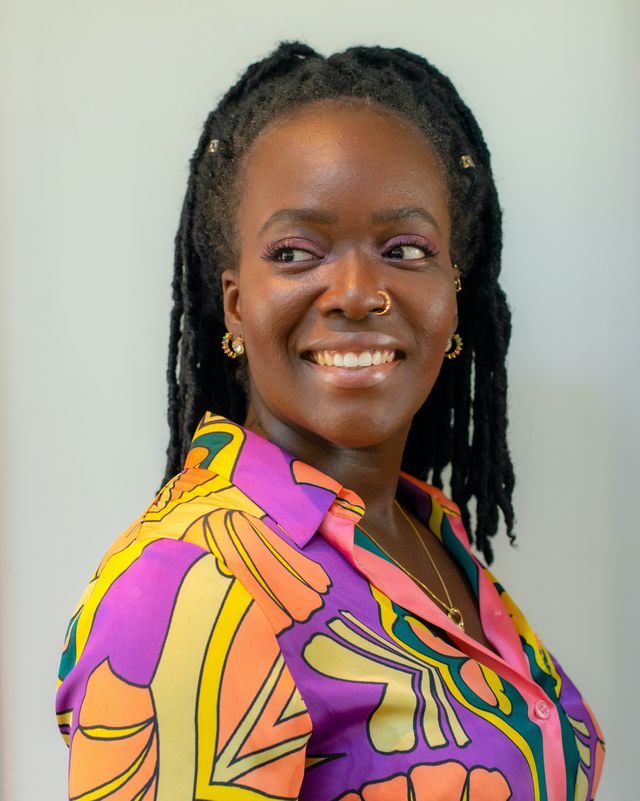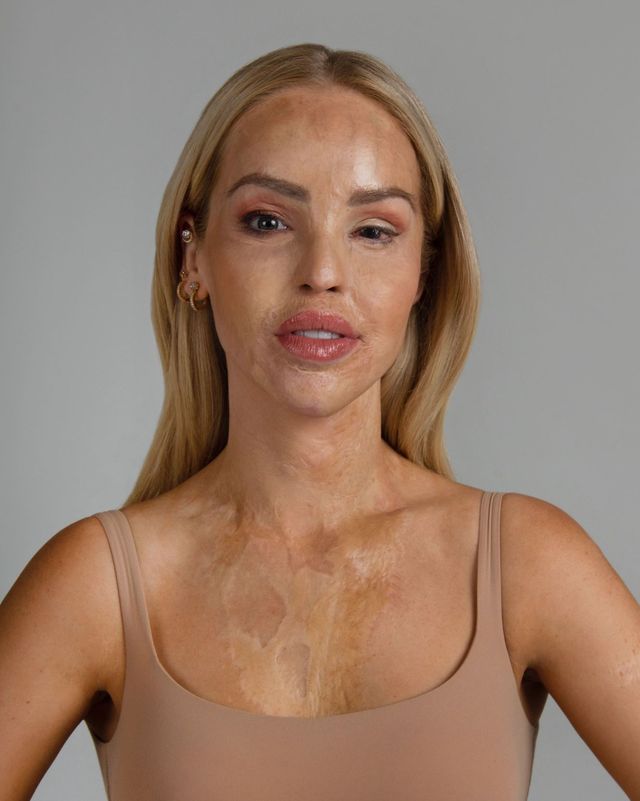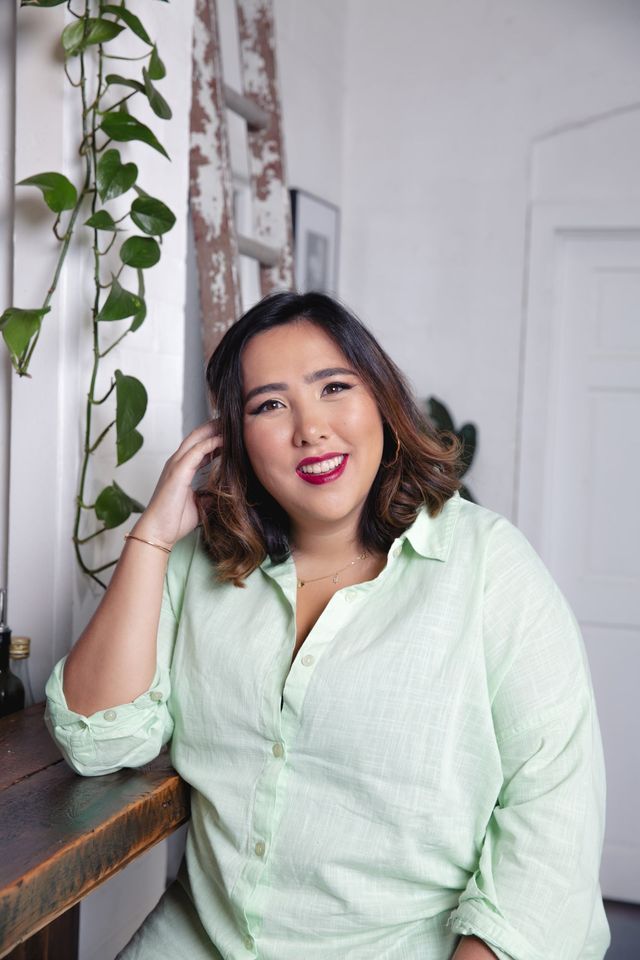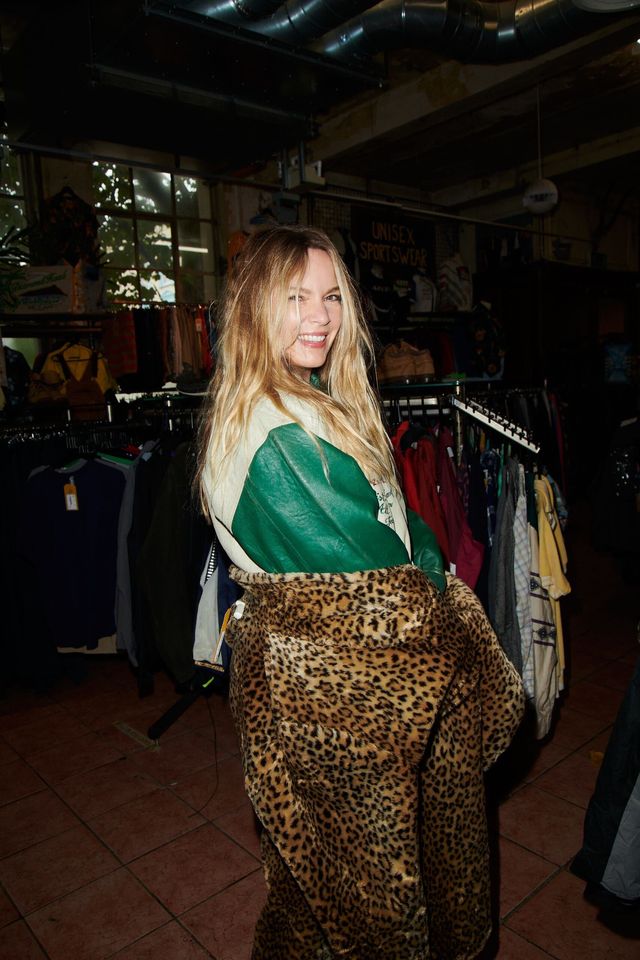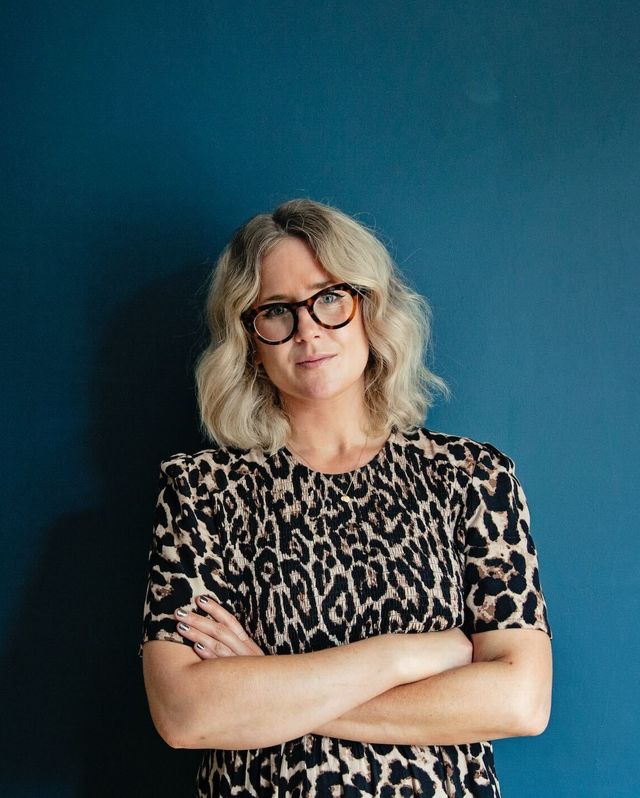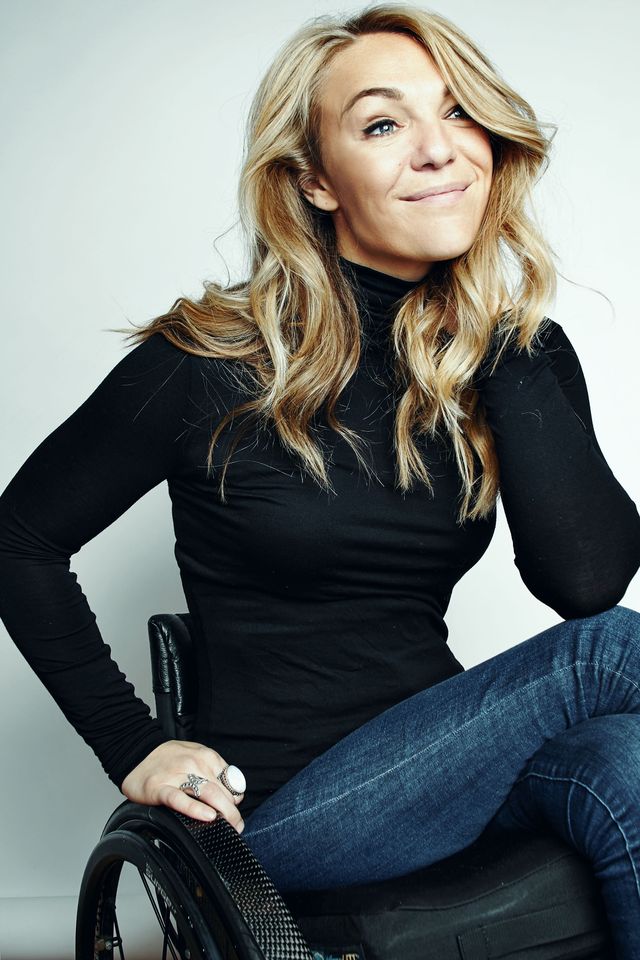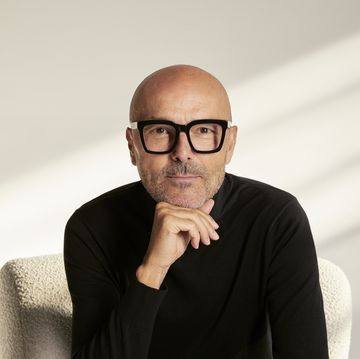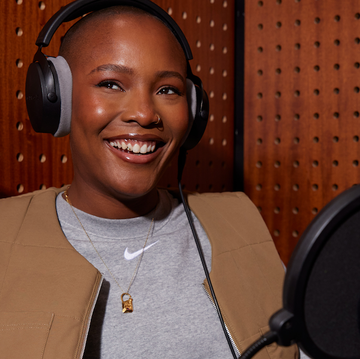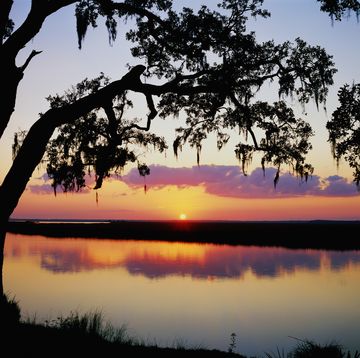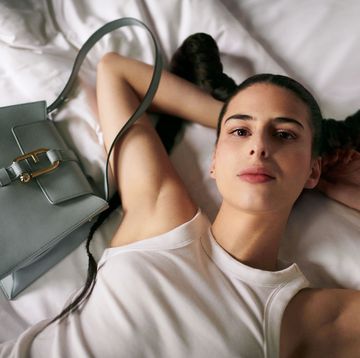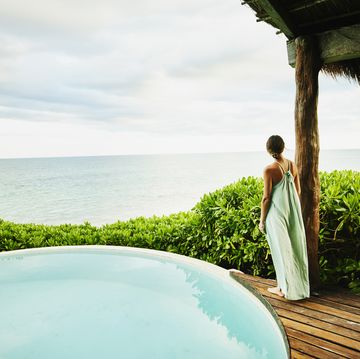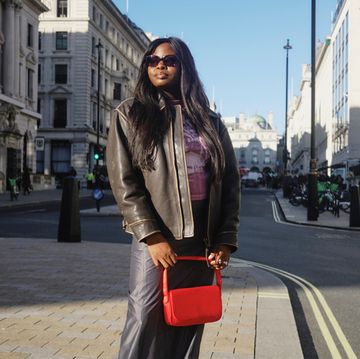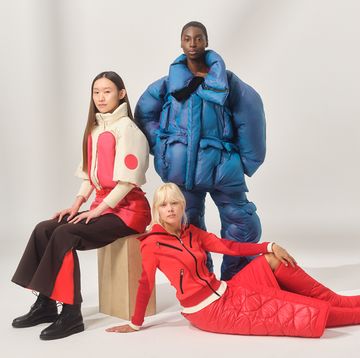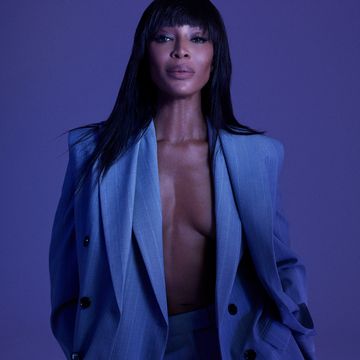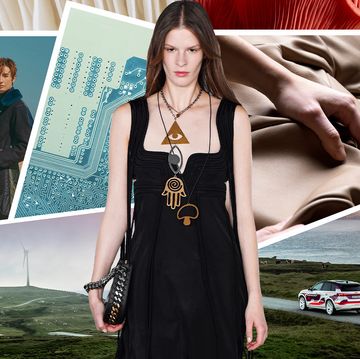When we think about power, many manifestations spring to mind. There’s physical strength, political force and social-media sway, plus a million other ways to showcase leadership and influence.
It’s a topic tackled in Prime Video’s new thriller series The Power, based on Naomi Alderman’s award-winning novel. In the show, which stars Toni Collette alongside a host of up-and-coming talent including Britain’s own Ria Zmitrowicz, teenage girls around the world suddenly develop the power to electrocute people at will. What follows is an awakening, examining power in all its forms, showing how power doesn’t corrupt people – people corrupt power.
Inspired by the show, we asked eight tenacious, unapologetic women what power means to them, and the answers might just inspire you to step into your own.
Seyi Akiwowo
Akiwowo is the award-winning founder and CEO of Glitch, a charity that supports women and marginalised communities by making online spaces safer. Elected as the youngest Black female councillor in East London at just 23, she’s also a former TED speaker, consultant and author of How To Stay Safe Online.
‘I used to have a negative association with power – I think because I saw people in positions of power use their platform, privilege and position in such horrible ways. I now define it as the choice to act. As a Black woman, this also means acting within boundaries so I'm not acting at a personal cost.
‘Because of that reframing, I now understand that power itself isn't bad – it’s neutral. It’s how people choose to deploy that power. I choose to use my power positively; to support the collective, rather than for personal gain.
‘My final reflection on power, particularly to Black women, is that the greatest power we have is self love, and being conscious of how we love ourselves in a world that constantly tells us not to. That is a powerful act.’
Katie Piper
Piper is a broadcaster, bestselling author and founder of The Katie Piper Foundation, which supports burns survivors. She started the foundation after suffering an acid attack in 2008. She also hosts Extraordinary People, a podcast sharing the stories of other inspiring guests.
‘My definition of power evolves constantly. Power comes from within, and when I think of power, I think of the inner strength we have over our own thoughts and mindset. I feel power in sharing my story, whether in my books or speeches. When you bring stories to these platforms, your experiences can feel validated while simultaneously building a powerful community.
‘As women, we can underestimate our power. We can become self-deprecating and feel embarrassed at the thought of appearing arrogant. I’ve sometimes fallen into that trap professionally, but we must step into it. We all hold immense power and we must tap into it, have the confidence to project it and the self esteem to believe in it.’
Michelle Elman
Elman is a speaker, life coach and author of three books: Am I Ugly?, The Joy of Being Selfish and The Selfish Romantic. She has also created successful campaigns such as Scarred Not Scared, calling for better representation for people with scars, and a photoshoot showing the beauty of plus-size Asian women.
‘Most people who grow up in a patriarchal society learn that power equates to money and status. My definition of power changed when I started questioning my definition of success. When I realised it wasn’t working the most or being the best, my definition shifted.
‘To me, power means having emotional intelligence around my strengths, advocating for myself and understanding that my needs are as important as anyone else’s. When I’m at my most powerful, I’m able to respond instead of just reacting, and to use my voice to stand up for my morals and values.
‘Any time I speak up about Asian discrimination and breaking the stereotypes that come with any labels put on me, I feel powerful. I love the feeling of not being able to be defined.’
Amy Bannerman
Bannerman is a stylist who specialises in pre-loved fashion and who styled the past two series of Love Island. She campaigns to shift consumer behaviour away from fast fashion, and has a client list that includes Dua Lipa, Jonathan Van Ness and Sophie Turner.
‘Power is freedom to openly love who you love, live where you want, wear what you want, be who you want to be and worship what you want to worship. So many women across the world don’t have that power, and I feel very grateful that I do.
‘As consumers, we have the power to make change. If we stop buying fast fashion, brands won’t keep churning it out. Since eBay collaborated with Love Island, searches for “pre-loved fashion” on eBay have increased by more than 1,400% – that says it all! To be a huge part of this change is one of the proudest moments of my career.’
Anna Whitehouse
Whitehouse, founder of Mother Pukka, is a journalist, bestselling author and campaigner. Her Flex Appeal movement has achieved tangible change in flexible-working policies across the UK.
‘I’ve felt at my most powerful when responding to moments of powerlessness. Being told my flexible working request, while working in publishing, couldn’t be accepted because it would “open the floodgates” to others seeking flexibility was like a match being struck, sparking a fire to change the landscape for my daughters.
‘I felt powerless in a system that was set up for mothers to fail – turning up late to nursery to pick up my teary-eyed daughter, or being tutted at for leaving “early” to pick her up, despite having started work an hour earlier. Power is having the autonomy to make decisions for yourself and the ability to speak up on behalf of others who feel powerless.
‘I want to reiterate what Emma Thompson said: “Men aren’t all are power-crazed egotists. But we need fewer of them in positions of power.”’
Sophie Morgan
Morgan is an award-winning broadcaster, writer and inclusive travel expert who was paralysed in a car crash aged 18. Her bestselling memoir, Driving Forwards, is out now.
‘I feel powerless on a daily basis: when someone breaks my wheelchair during a flight, when I’m somewhere where there’s no relevant disabled access, or when I’m spoken to like a child – or worse, ignored.
‘Power is a combination of having a voice, understanding how to use it and knowing exactly what you want to say. I used to be like a loaded gun, but there were so many things I wanted to aim at. Over time, I’ve worked out what my message is. I now know exactly what my target is, and that’s extremely powerful.
‘I want to change the way Disabled people are represented and defined. My latest campaign, Rights on Flights, pushes the air-travel industry to take Disabled people more seriously. We’re off to parliament to demand change. That’s power. 2023 feels like a radical time, with visibly Disabled people becoming more public and forthright with their demands.’
Stream The Power on Prime Video from 31 March

Isabella is a freelance journalist who has written on young women's issues, entertainment, TV and film, South Asian representation, mental health, dating and so much more. She has bylines in ELLE, Cosmopolitan, Good Housekeeping, Prima, Digital Spy, Women's Health, and Harper's Bazaar, and was named 30 Under 30 by MediaWeek, PPA and We Are The City. She was also shortlisted for Workplace Hero at the Investing In Ethnicity Awards and Hero of the Year at the European Diversity Awards. Follow Isabella on Instagram, Twitter and LinkedIn.
